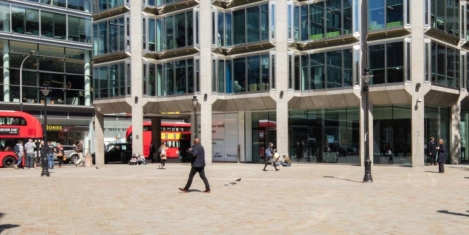To provide the best experiences, we use technologies like cookies to store and/or access device information. Consenting to these technologies will allow us to process data such as browsing behaviour or unique IDs on this site. Not consenting or withdrawing consent, may adversely affect certain features and functions.
The technical storage or access is strictly necessary for the legitimate purpose of enabling the use of a specific service explicitly requested by the subscriber or user, or for the sole purpose of carrying out the transmission of a communication over an electronic communications network.
The technical storage or access is necessary for the legitimate purpose of storing preferences that are not requested by the subscriber or user.
The technical storage or access that is used exclusively for statistical purposes.
The technical storage or access that is used exclusively for anonymous statistical purposes. Without a subpoena, voluntary compliance on the part of your Internet Service Provider, or additional records from a third party, information stored or retrieved for this purpose alone cannot usually be used to identify you.
The technical storage or access is required to create user profiles to send advertising, or to track the user on a website or across several websites for similar marketing purposes.
 A team from Savills’ flexible office platform Workthere has predicted the top five tech trends we’re likely to see arriving into offices across the UK in 2019. Supporting the research, Workthere also completed a survey of 2,000 office workers to find out their views on the future of workplace technology as defined by the original study. The poll suggests that employees think that the Internet of Things will have the biggest impact on their day to day working lives followed by voice activated technologies and wireless charging.
A team from Savills’ flexible office platform Workthere has predicted the top five tech trends we’re likely to see arriving into offices across the UK in 2019. Supporting the research, Workthere also completed a survey of 2,000 office workers to find out their views on the future of workplace technology as defined by the original study. The poll suggests that employees think that the Internet of Things will have the biggest impact on their day to day working lives followed by voice activated technologies and wireless charging.



































January 30, 2019
Talkin’ about my generation: Harnessing the power of the multigenerational workplace
by John Hackston • Comment, Workplace